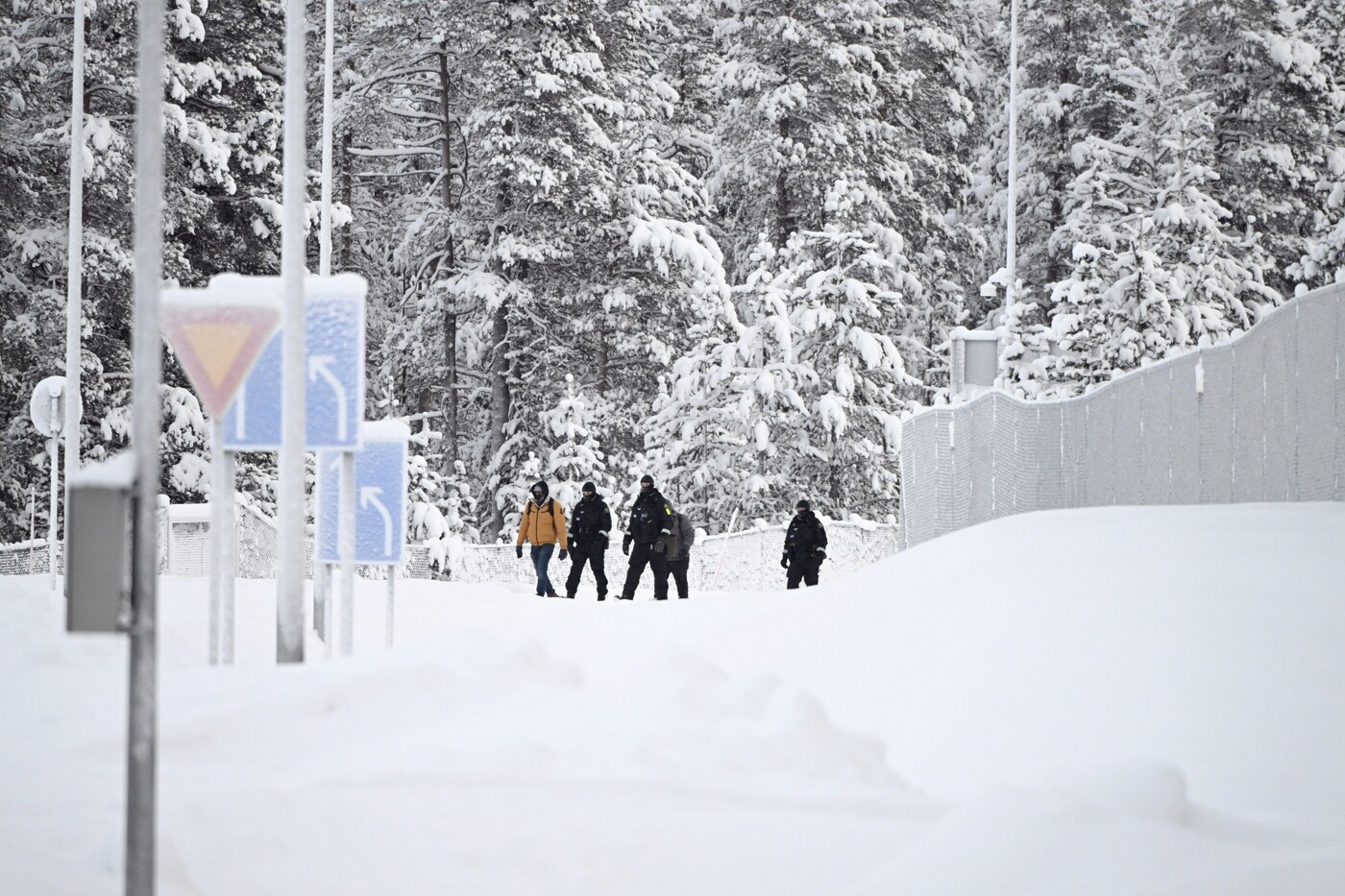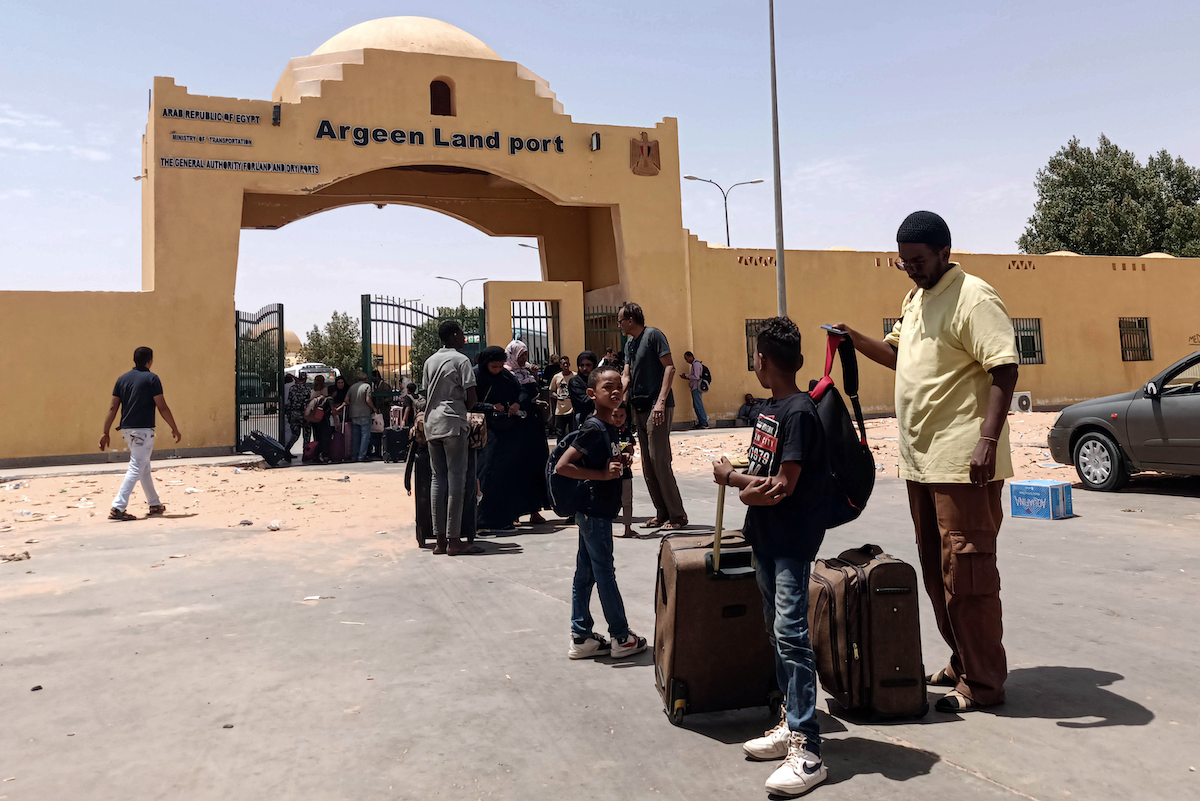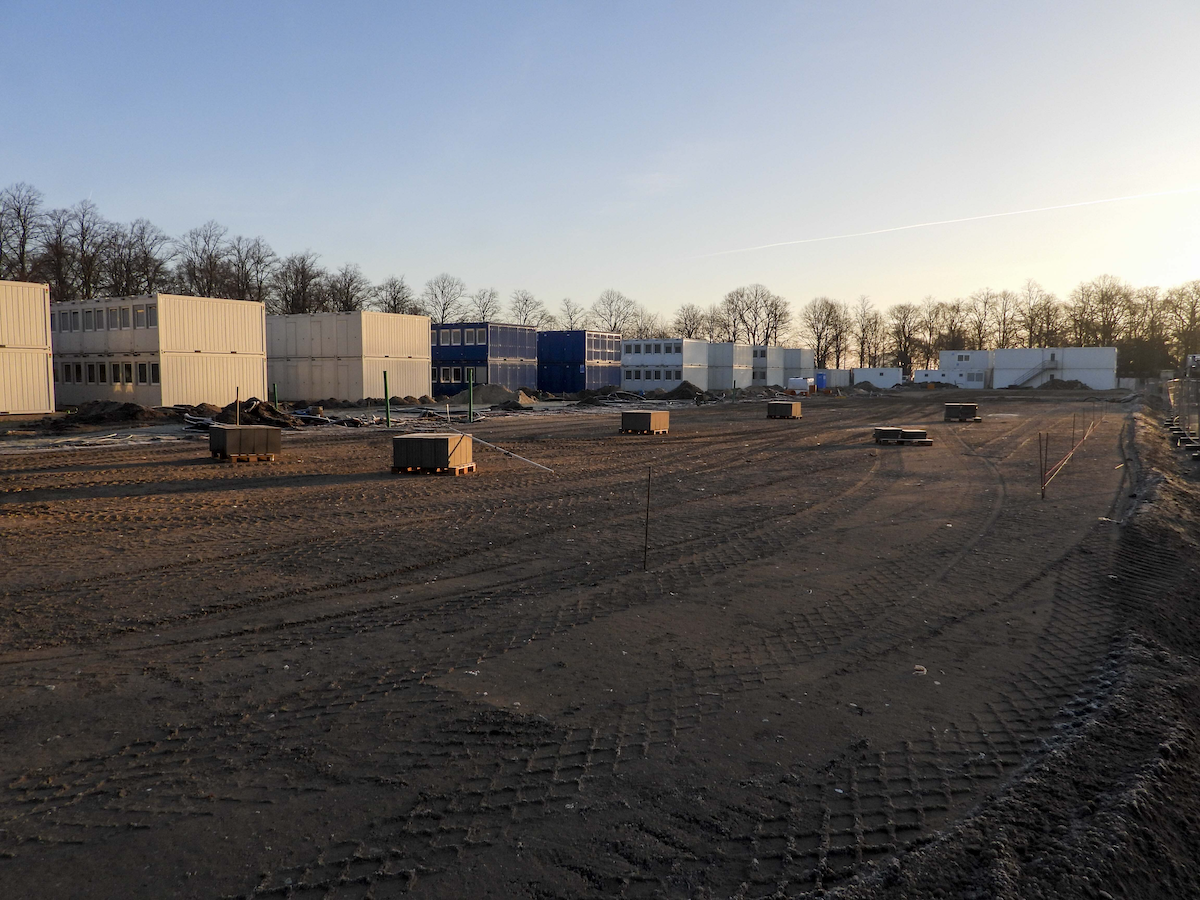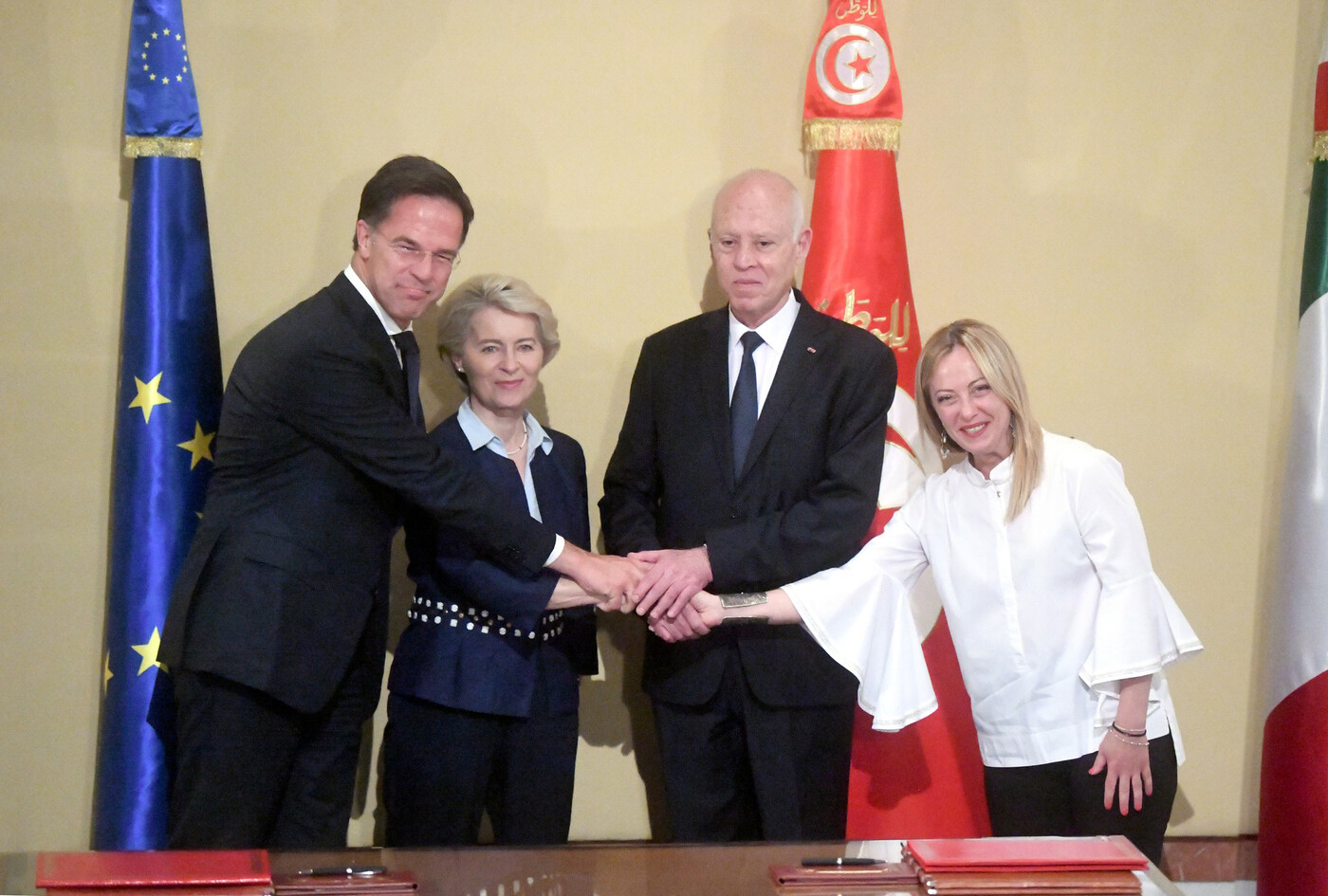MEDIENDIENST Integration: Various European governments have introduced or reinforced anti-smuggling policies. Are those policies effective?
David Suber: It's hard to generalize across different borders, different migration routes and different government responses to migrant smuggling. But overall: no. Policies intended to stop irregular migration and break the smugglers' business model are failing across the board.
Why is that?
Because they are focusing on the wrong target with the wrong tools. The rationale behind border enforcement policies is that if a state strengthens its borders and targets the smugglers, this will reduce irregular border crossings. But measures such as building walls, enhancing surveillance, increasing police patrols only reduce the number of border crossings on a short term. They do little to affect the reasons why people move in the first place. Quite the contrary, it makes smugglers even more necessary to those who have no other options but to rely on their services to travel.
You say, those border policies only show a short-term effect. What happens in the long run?
The harder a border is to cross the more smugglers need to "up their game" and become better at what they do. There is evidence pointing in this direction emerging from multiple locations across the borders of Europe and from different migration routes. The long-term effect therefore is the "professionalization" of smuggling groups.
Professionalized smuggling groups come into existence because of anti-smuggling policies?
Smuggling groups exist because EU governmentsare failing to address the reasons why people need to leave their countries. When anti-smuggling policies make migration routes more dangerous, smuggling groups become more professional in order to cater to the needs of people on the move. I would say that the professionalization of smugglers is an unintended consequence of the EU governments anti-smuggling policies. These policies are failing to curtail irregular migration and reinforcing what they are meant to be fighting against in the first place.
What does this professionalization of smuggling look like?
More professional does not mean more criminal: It means becoming more capable to bypass limitations brought about by anti-smuggling policies and adapt to new circumstances. For example, sourcing clients on Tik Tok and Telegram. Specializing on smuggling people across a specific border rather a whole route. Making deals with local organized crime or bribing border officials. Displacing smuggling routes to lesser controlled areas. These are all ways of "professionalizing", becoming more effective at what they do. Not all smugglers can do this, so in some sense anti-smuggling policies are successful in targeting those smugglers who cannot "up their game". So, these policies do two things: they target "small fishes" whilst prompting others to adapt and transform.
Who are "the smugglers"?
In general, most smuggling was and still is organized by ad-hoc smugglers. Most often they are people on the move themselves who profit from knowing a specific border very well and decided to stay there and work as cross-border facilitators in exchange for a fee. It’s a job full of risks and stress. I have interviewed many who started working as smugglers quite spontaneously as a way to sustain themselves and then continued because it provided a source of profit they wouldn’t have found elsewhere. Many are working to sustain their families at home, or saving money to apply for a visa to get to Europe legally. They know very well the hardship that migrants and asylum seekers face once they reach Europe and are trying to avoid that.
Smuggling groups are often described as cohesive organized crime gangs, with clear hierarchies and roles.
This is rarely the case. The groups are very flexible and tend to shift and re-group very often. Smugglers who organize trips from Turkey would partner-up with smugglers in Greece to organize a journey, but might collaborate with another smuggling partner for the subsequent leg of the journey. They are not static structures, but ad-hoc groups constantly re-forming according to shifting circumstances.
What about big smuggling networks?
Those exist, but it's a minority. These might either be groups who have grown to take control of a section of a specific border, and don't accept that other smugglers operate there, or groups who have partnered up with local organized crime groups who use that border for the smuggling of legal and illegal goods. Most empirical fieldwork research across different borders around the worldshows there is minimal confluence between typical organized crime groups and people smuggling.
How many smugglers are there – do you have any numbers?
No, there are no reliable figures or statistics because smuggling is an activity that is hidden and criminalized. Technically the only way of having rough estimates is to look at numbers of people being arrested and charged with smuggling offences, which obviously are not accurate because they only cover those who are detected – not those who are active and undetected. And, more importantly: most people arrested for smuggling offences in Europe are not smugglers, but migrants and asylum seekers who were given the task of steering the boat or driving a car, or guiding a group through the forest following some dropped pin locations. The smugglers organizing these trips are very rarely caught.
So many of the arrested smugglers are refugees themselves.
Exactly. In many EU countries, authorities are determined to show they are doing their job by arresting "smugglers". The police forces know that this isn't effective because most of those being arrested are not smugglers. It's mostly done as a way to measure the success or impact of border securitization, regardless of the trauma and further vulnerability it causes to people who get locked up, not to mention the costs to the state.
What is the role of bribery for smuggling?
Bribery is omnipresent. I recorded evidence of it on every border I conducted fieldwork in. Including inside Europe. I cannot be too specific on this due to my on-going fieldwork. But generally speaking, I can say thatsmugglers aim to have police officers on their pay books because this raises the chance the trips will run smoothly, which is what smugglers want. Smugglers are most often portrayed as cruel criminals exploiting other people"s misery and surely there are some who have knowingly sent people off in dangerous circumstances, crowding boats over capacity with no moral hangovers. From my research I know that most smugglers really care about their reputation, as this is how they will get their future clients. A lot of smuggling works through recommendations and trust. It's unlikely you will be a successful smuggler if it is known that you are providing a bad service.
Building walls seems almost fashionable at the moment – do they deter smugglers?
I haven't seen a single place where a wall actually stopped border crossings outright. It surely slows the crossings for a certain amount of time, especially when the wall or fence are being built, as at that time there are actual people building it. To put it simply: walls create the opportunity for smugglers to offer ladders. Thus, you end up having smugglers showing upwhere people didn't previously need them.
If border police measures don’t have the effect of stopping smuggling – what would have?
There are hardly any legal pathways to Europe and that’s what creates the demand for smugglers. The visa system is purposefully not working despite there is plenty of research showing that Europe needs workers in order to support its economic development standards. A first step to put the smugglers out of business would be to make visa systems actually accessible to people on the move. Humanitarian visas for asylum seekers fleeing from war and persecution, but also working visas for migrants wanting to get to Europe to access legal employment opportunities. Political rhetoric has undermined evidence about the functionality of circular migration. If a person could apply to enter the EU to work legally and then travel back to their country because there is a fair system allowing future re-entry, what would smugglers be there for?
Interview: Donata Hasselmann



